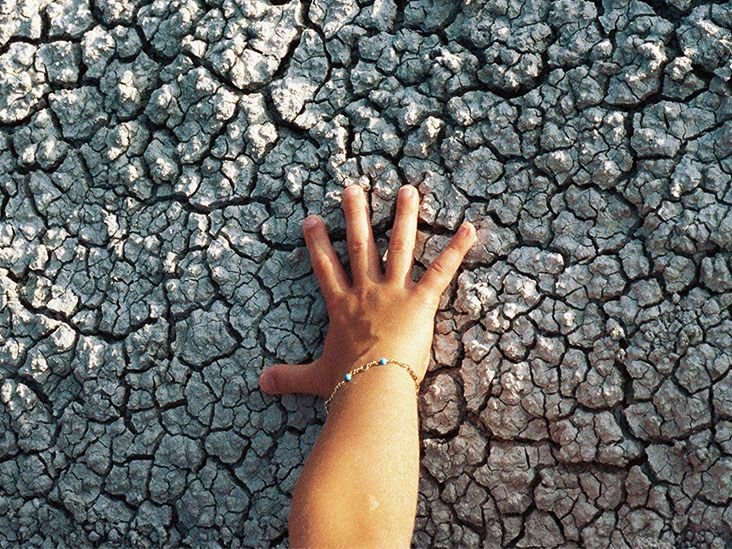The effects of climate change on health have been a topic of concern for scientists for many years. Now, researchers from the University of California San Francisco (UCSF) have found that climate change can negatively affect individuals with eczema, a chronic skin condition.
The study, published in the journal Allergy, focused on 10 climate hazards that are related to greenhouse gas emissions and their impact on atopic dermatitis, also known as eczema. These hazards include global warming, heat waves, wildfires, drought, floods, and rising sea levels.
The researchers analyzed data from 18 studies that provided evidence of the aggravation of eczema by these climatic hazards. They found that there is evidence linking most climate-related hazards to the worsening of atopic dermatitis. Some of these effects are direct, such as particulate matter from wildfires, while others are indirect, such as drought-induced food insecurity and subsequent migration, which can disrupt regular healthcare and cause stress that could impact a person’s eczema.
To illustrate the projected burden of eczema relative to climatic hazards, the scientists created maps showing cumulative exposure to these hazards in 2005 and 2017, as well as predictions for 2053. The maps revealed an overlap between geographic areas with more exposure to climatic hazards and increased prevalence of atopic dermatitis. The projections for 2053 highlighted areas that are most likely to be impacted in the future, emphasizing the need for further research in these regions.
Dr. Katrina Abuabara, an associate professor of dermatology at the UCSF School of Medicine and a senior author of the study, explained that understanding how climatic factors impact eczema could lead to better strategies for addressing disease triggers. She also emphasized the importance of studying the impact of climate change on atopic dermatitis from a public health perspective, considering the high prevalence of the condition.
Dermatology experts believe that increased understanding of how climate change affects atopic dermatitis can help doctors and patients take steps to mitigate its impact. They recommend measures such as yearly skin screenings, wearing sunscreen and sun-protective clothing, checking air quality before going outside, using moisturizers to protect the skin from pollutants, staying hydrated, maintaining a healthy lifestyle, using gentle cleansers, and being mindful of the ingredients in skincare products. They also advise individuals with eczema to find a healthcare practitioner experienced in managing the condition and to use medications when necessary to maintain optimal skin health.
Overall, this study highlights the need to consider the effects of climate change on various aspects of health, including chronic skin conditions like eczema. By understanding these impacts, researchers and healthcare professionals can develop strategies to mitigate the negative effects and improve the quality of life for individuals with eczema.




